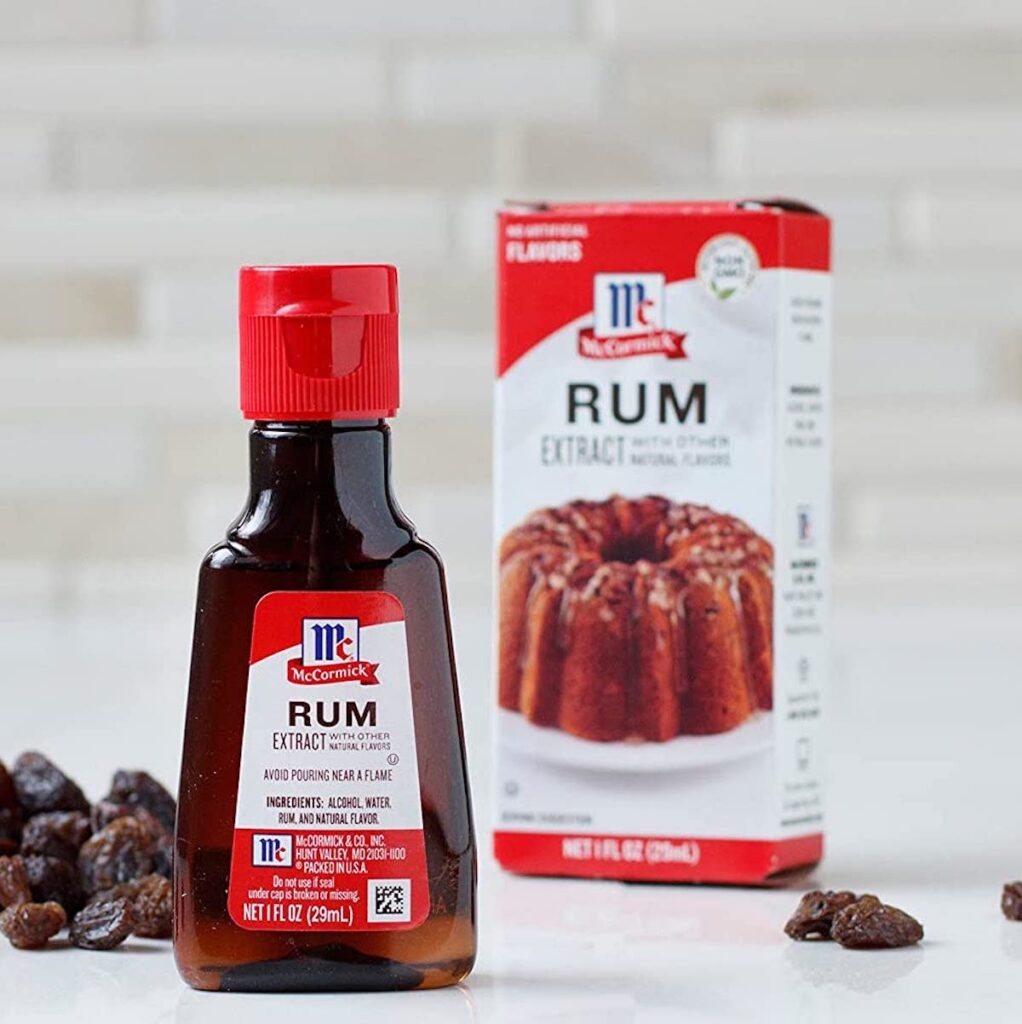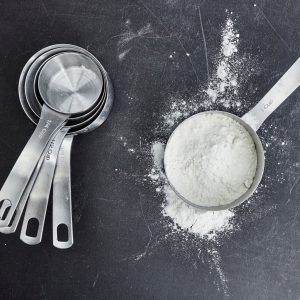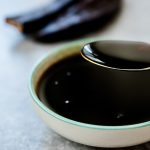Alcohol-Free Rum Alternatives for Flavorful Cooking and Cocktails
If you’re cooking or mixing drinks but don’t consume alcohol, you don’t have to skip recipes that call for rum. There are plenty of easy, delicious ways to substitute for rum — whether you’re making a rich dessert, a savory glaze, or a tropical mocktail. The key is understanding what rum brings to a dish: sweetness, warmth, depth, and sometimes a bit of spice.
For cooking, you can replace rum with common pantry ingredients like fruit juices, extracts, or even brewed teas. These mimic rum’s flavor profile without the alcohol. For cocktails, today’s growing market of alcohol-free spirits and rums offers even more options, delivering authentic taste and complexity.
In this guide, you’ll find simple substitutions for different types of rum — light, dark, spiced, and aged — along with tips on how to balance flavors in both food and drinks. Whether you’re avoiding alcohol for health, religious, or personal reasons, you can still enjoy your favorite recipes with a little creative tweaking. Read on for practical ideas that will help you cook and sip with confidence — no rum required!
Do Rum Extracts Work For Cooking & Cocktails?
For Cooking – Yes
Rum extract is an excellent substitute for rum in baked goods, glazes, marinades, and sauces. It captures the essence of rum’s flavor (sweet, slightly woody, spiced) without adding alcohol, especially if you use an alcohol-free version.
Since the extract is concentrated, a small amount (usually ½ to 1 teaspoon) replaces a tablespoon or two of rum. This works especially well when rum’s role is about aroma and background flavor—think cakes, cookies, bread puddings, or caramel sauces.
For Cocktails – No
Rum extract generally doesn’t work well in cocktails. It lacks body, warmth, and the complexity that real rum or non-alcoholic rum alternatives bring.
The alcohol-free extracts are often water-based and won’t integrate the same way into a drink. In cocktails, you’re better off using a non-alcoholic rum substitute or building similar flavors with fruit juices, syrups, spices, and a good non-alcoholic spirit to mimic rum’s mouthfeel and depth.
Alcohol-Free Rum Substitutions
If you’re looking for a nonalcoholic substitute for rum in your favorite recipe, there are several options to choose from. Here are a few common nonalcoholic substitutes for rum:
When looking for a nonalcoholic substitute for rum in your favorite recipe, there are several options. Apple cider, pineapple juice, coconut milk, vanilla extract, and almond extract are all good options that can add a similar flavor to your dish. Just be sure to adjust the amount used based on the strength of the substitute.
| Substitute | Flavor Profile | How Much to Use (per 1 tbsp rum) | Best Uses in Cooking |
|---|---|---|---|
| Almond Extract | Sweet, nutty, strong flavor | ¼ to ½ teaspoon | Baked goods, desserts, fillings, sauces |
| Apple Cider | Sweet, fruity, similar to rum | 1 tablespoon | Glazes, marinades, sauces, braised dishes |
| Coconut Milk | Sweet, creamy, tropical | 1 tablespoon | Curries, sauces, baked goods, seafood dishes |
| Pineapple Juice | Sweet, tropical, citrus and vanilla notes | 1 tablespoon | Sweet & sour sauces, pork dishes, marinades |
| Vanilla Extract | Sweet, fragrant, strong flavor | ½ to 1 teaspoon | Baked goods, custards, desserts, sauces |
Do Extracts Contain Alcohol?
Rum extract typically contains between 35% and 40% alcohol by volume, about the same as some distilled spirits. This high alcohol content helps dissolve the vanillin and other aromatic compounds from the vanilla bean, making it a concentrated flavoring agent.
Despite its alcohol content, vanilla extract can be sold in grocery stores as non-alcoholic because it’s classified as a “flavoring” or “food product,” rather than an alcoholic beverage.
The FDA and other regulatory bodies recognize that rum extract is intended for cooking and baking, where it’s generally used in small amounts, and the alcohol essentially evaporates during cooking.
Since it’s not meant for drinking, it’s regulated differently from liquor and doesn’t fall under the same laws as alcoholic beverages for sale or consumption.
The Ever Growing Non-Alcoholic Beverage Market
The non-alcoholic beverage market has exploded in recent years, and rum alternatives are riding that wave. More consumers — from sober-curious drinkers to those avoiding alcohol for health, religious, or lifestyle reasons — want great-tasting options that deliver the same experience as traditional spirits. This demand has pushed brands to develop sophisticated non-alcoholic rums that go far beyond sugary syrups.
Today’s alcohol-free rums often use advanced techniques like botanical blending, vacuum distillation, and natural flavor extractions. These methods replicate the deep, complex character of rum — whether light, dark, spiced, or aged — without the alcohol. They provide the sweetness, spice, and warmth that bartenders and home mixologists rely on to craft balanced drinks.
This growing market has also influenced the cooking world. More recipes now recommend non-alcoholic rums for glazes, marinades, or desserts, making it easier for everyone to enjoy bold, rum-infused flavors without compromise.
As the industry continues to innovate, expect to see even more refined alcohol-free rums and wider availability at bars, restaurants, and retailers. Whether you’re making a classic Daiquiri or a rum-soaked cake, the new wave of non-alcoholic rums ensures you won’t miss out on flavor.
How Are They Made?
Non-alcoholic rum alternatives are crafted using a variety of techniques to mimic the flavors, aromas, and mouthfeel of traditional rum without the alcohol. Here’s how they are typically made:
| Technique/Aspect | Description | Common Ingredients/Methods | Key Differences from Traditional Rum |
|---|---|---|---|
| Distillation & De-alcoholization | Starts with real rum, removes alcohol using advanced methods | Vacuum distillation, reverse osmosis | No fermentation difference; process is more complex and costly |
| Botanical Blending & Flavor Extraction | Creates flavors from scratch using natural extracts | Molasses & cane sugar extracts, vanilla, caramel, toffee, spices (cinnamon, clove, nutmeg, ginger), oak extracts, smoke essences | No fermentation; relies on flavor building instead of natural rum development |
| Fermentation-Free Formulas | Skips yeast fermentation; builds complexity with extracts | Plant-based extracts, fruit distillates, spice infusions | No natural alcohol production; no fermentation |
| Mouthfeel & Texture Enhancers | Adds body, weight, and warmth to mimic alcohol mouthfeel | Glycerin, xanthan gum, plant-based thickeners, capsaicin, pepper extracts | No alcohol “burn”; mimicked using additives |
| Aging & Maturation Simulation | Replicates depth from aging | Oak extracts, charred wood infusions, short barrel-resting | No true aging; limited simulation of barrel effects |
Examples of Non Alcoholic Rums Available
Monday Zero Alcohol Rum
This non-alcoholic rum alternative features a sweet tobacco aroma with tropical fruit notes. On the palate, it presents flavors of burnt caramel, mocha, and roasted coffee, making it a delightful choice for classic cocktails like Daiquiris and Dark ‘n’ Stormy.
Ritual Zero Proof Rum Alternative
Designed to mimic the warmth and spice of traditional rum, this zero-proof option offers notes of vanilla, toasted spice, and a hint of oak. It’s crafted to provide the familiar rum experience without the alcohol content.
Lyre’s Dark Cane Spirit
This non-alcoholic spirit delivers strong caramel notes, with subtler hints of cola, butterscotch, baking spice, and mint. It’s suitable for those seeking a rich, dark rum alternative.
Commercial Products
After doing a little research, I found a few rum substitutes that say they are alcohol-free. These include:
Alcohol Free Rum
Ingredients
- ⅔ cup water boiling
- ¼ cup raisins
- 2 tablespoons butter
- 4 teaspoons molassis
- 1 tea bag black tea
Instructions
- Add the raisins, butter, and molasses to a bowl containing the boiling water. Stir to combine.
- Add the tea bag of black tea to the water mixture and steep for 4 minutes.
- Refrigerate the mixture for 1 hour to let flavors combine.
- Strain the liquid through a fine strainer or coffee filter and use it as a substitute for dark rum.






15 Responses
Where can I buy 1 gallon of rum extract?
That’s a lot of extract. I would do a search for institutional rum extract and see what comes up. Anyone else have an idea?
My recipe ask for 1/4 cup of rum,how much rum extract will I use to substitute the rum?
Hi Elton, I’m not sure but according to About.com,
• 2 Tablespoon rum = 1/2 to 1 teaspoon rum extract. If the liquid is an important part of the recipe, add enough water or apple juice to make up the difference.
• 1 Tablespoon dark rum = 2 Tablespoon rum extract.
• 5 Tablespoon light rum = 1 Tablespoon rum extract.
You’ll have to do the math.
Actually flavoring extracts, be they pure or imitation, contain alcohol unless specified otherwise (for example I’ve seen alcohol-free vanilla extract) so flavoring extracts still couldn’t be used by someone who’s trying to avoid alcohol altogether. I use the same brand of extract as the one you have pictured (which they have a good deal on at Walmart) and if you look on the back label on the ingredients list you’ll see “alcohol (25%)” listed (after propylene glycol and water) so I’m just saying you might want to update your blog o reflect that information more clear, lest someone get the idea that they’re avoiding alcohol altogether by using extracts.
Not everyone is old enough to buy rum, just saying.
But ANYONE of ANY AGE can buy RUM EXTRACT which is the point being made. *eye roll*
That was the point being made? Really?
I didn’t get that from any of the comments. I think maybe the eyeroll was a bit over the top.
IMO her response was to the poster saying there is alcohol in extract as well. The tone seemed belittling to those choosing not to use real rum.
I don’t want ANY alcohol used in recipes. Is a different extract available?
Sorry, more specific. Another flavor to be used in this recipe?
Not that I know of Julie.
To get a rum flavor without the alcohol, you can mix molasses with water until you get a similar taste to rum (it will be sweeter than rum, so you may have to cut the amount of sugar in the recipe). Rum is fermented molasses, and gets its flavor from the molasses.
Well, what do you know. I learned something today! Thank you?
Thank you ❤️
Vanilla extract and almond extract have as much alcohol as rum extract. Rum extract is not alcoholic because it has rum. It has alcohol because that’s how extracts are made.